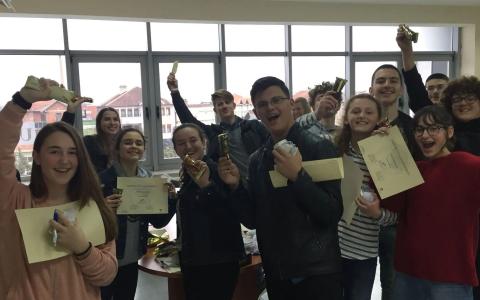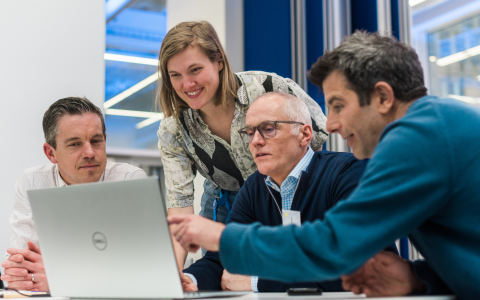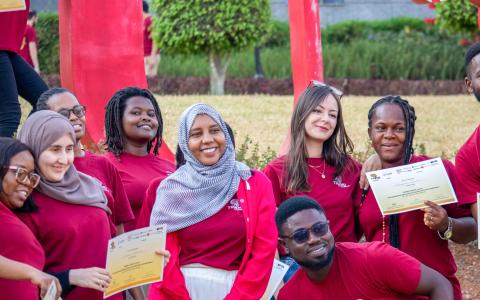
Teaching, learning and the joy of discovery at BrainCamp Kosovo
Described as ‘life-changing’, ‘amazing’ and ‘inspiring’ – and that’s just by the teachers – BrainCamp Kosovo, a week-long neuroscience education programme for young people, continues to go from strength to strength.
Created by Dr Egzona Morina, a former PhD Student at SWC, the programme has just finished its eighth iteration. Working in partnership with the Xheladin & Xhufe Morina foundation, the Innovation Centre Kosovo and the ATOMI Institute, BrainCamp brings neuroscience education to high school and undergraduate students – something that isn’t traditionally available in Kosovo.
“I want young people to see science differently, something they can connect with, be excited about, and see themselves in" - Dr. Egzona Morina, Founder of BrainCamp Kosovo and the Xheladin & Xhufe Morina foundation.
We spoke to two of the SWC volunteer teachers about their passion for neuroscience and what the experience taught them.
The joy of learning
Shohei Furutachi, a Senior Research Fellow at SWC, travelled to Kosovo with four other volunteers from SWC in June 2025. For Shohei, the week was more than a teaching opportunity. “As a teacher, I experienced, I would say, the joy of observing someone's excitement at learning something new.
“The whole experience was amazing. It was life-changing.
“It reminded me of myself when I started in neuroscience. Witnessing that excitement felt like a privilege.”
For SWC PhD student Athina Apostolelli, returning to the fundamentals brought a sense of renewal. “It re-ignited my passion for neuroscience,” she says. “Listening to the other teachers, I went back to some basic things that I hadn't seen in a few years.” Lectures covered everything from brain signals to building neural networks, computational neuroscience and ethics.“I also learnt some new things from other lecturers. I sat and enjoyed the lessons when I wasn’t teaching myself. The topics we covered are so interesting,” says Athina, “I found myself looking up articles after the talks. It was very refreshing from a scientific point of view.”
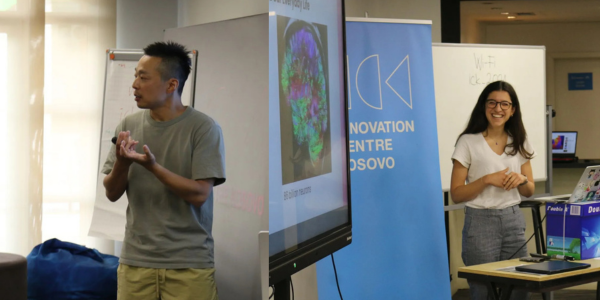
Shohei Furutachi and Athina Apostolelli, teaching at BrainCamp Kosovo, 2025.
Both Shohei and Athina commended the students' engagement and curiosity throughout the course. “I found I really enjoyed teaching,” says Athina.
“Science can be especially challenging in academia, where the goal is to push the boundaries of knowledge. But that’s only one side of science—sharing knowledge more broadly can be equally exciting and rewarding,” adds Shohei.
The importance of knowledge
As well as sharing the students' enthusiasm with the subject matter itself, Shohei and Athina both believe in the importance of neuroscience more widely, as part of our day-to-day lives – whether that is through knowing someone with a neurological condition, or understanding the difference between biological brains and artificial intelligence.“A basic understanding of how the brain works is useful, to avoid common misconceptions and misleading ideas,” says Athina. “I would love to start introducing neuroscience to more people.”
Shohei reflects, “It is a responsibility to study neuroscience, and it is important to share our work with other people.”
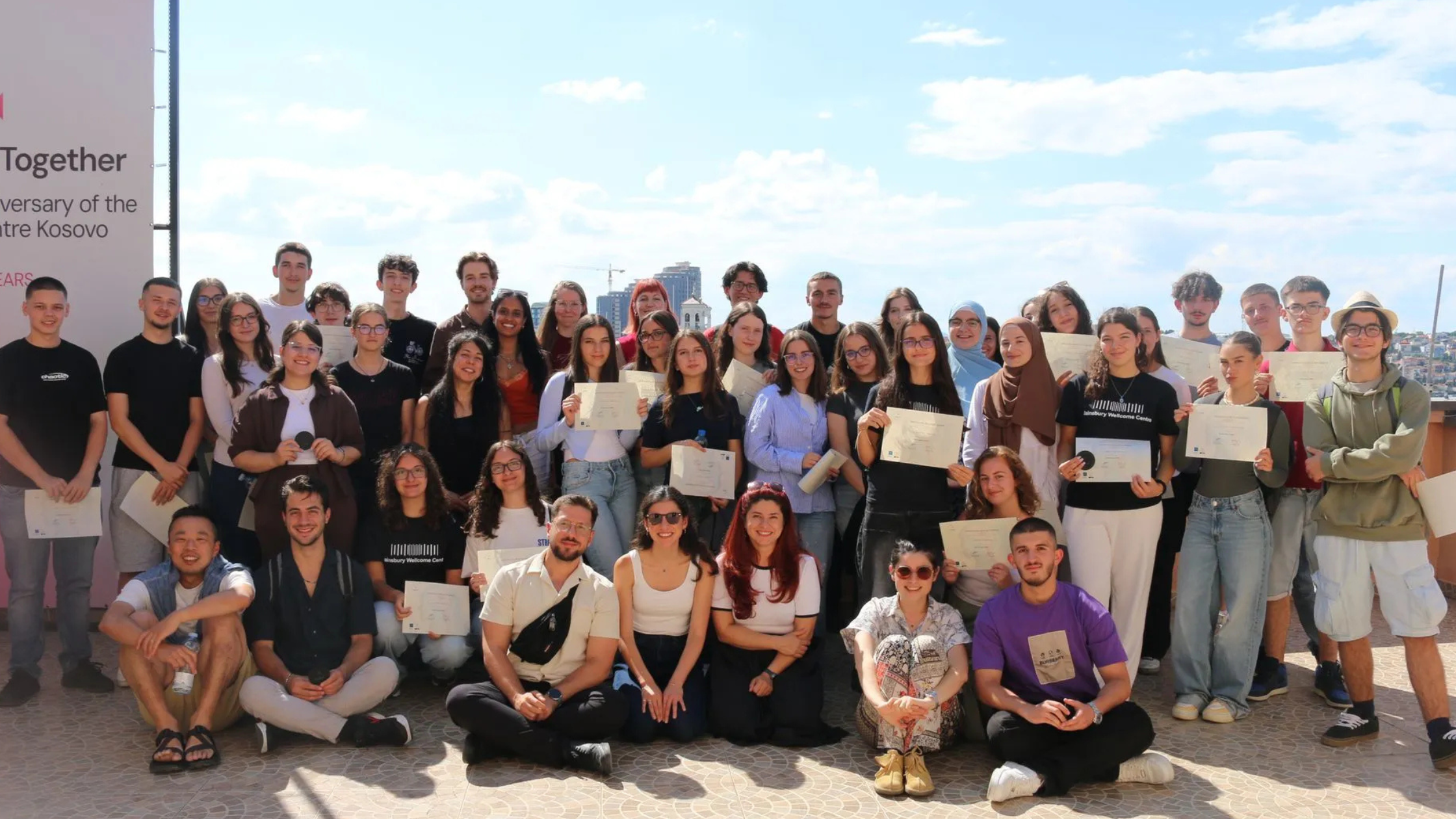
Students and teachers at the end of BrainCamp Kosovo, 2025.
Impacts
Many of the students at this year's BrainCamp are considering studying neuroscience at university, and the teachers will keep in touch with them, being on hand to offer advice on applications or courses. Others, already at undergraduate level, plan to move into research or move into neuroscience.
“If we can inspire someone with neuroscience, or if a student can see our passion for science, I think we’ve done our job,” says Athina. “I think we did that.”
“It was emotional when we said goodbye,” says Shohei.
“I loved Kosovo,” adds Athina. “We felt a real sense of community there, and we were so warmly welcomed to Pristina.”
Shohei would like to return, though he’d also like to create space for others to experience it too.
“If there is a space next year,” he says, “I’ll take it.”
Find out more
The Sainsbury Wellcome Centre supports BrainCamp Kosovo with volunteers, travel costs and additional materials. For more details of all our education and public engagement work, visit our public engagement page.
